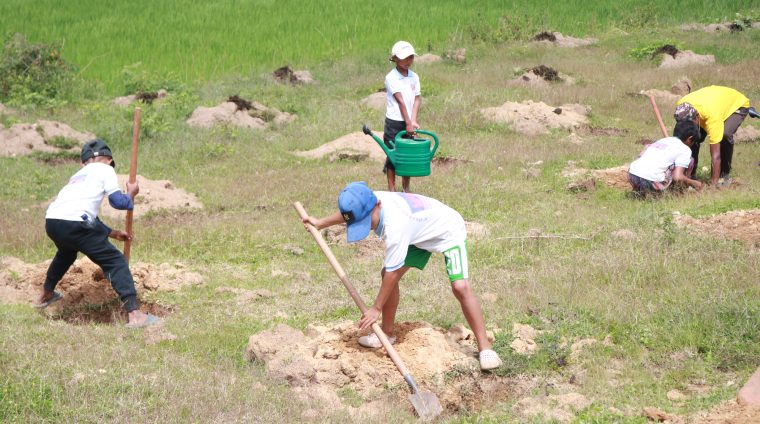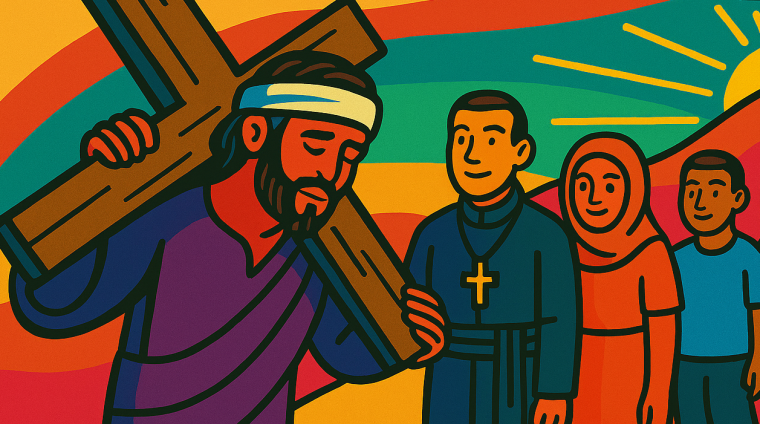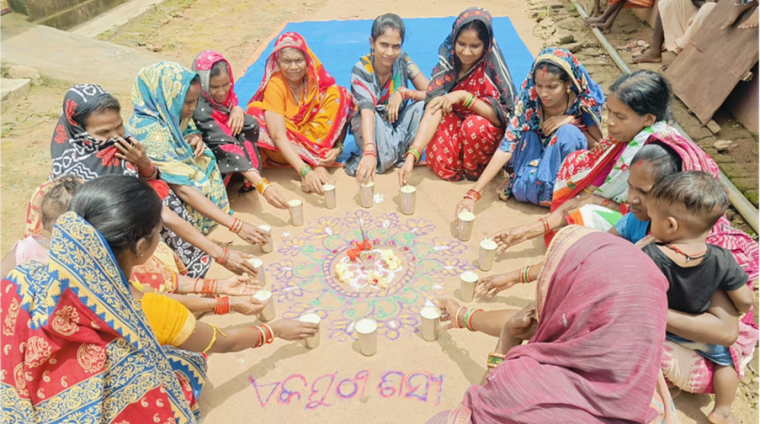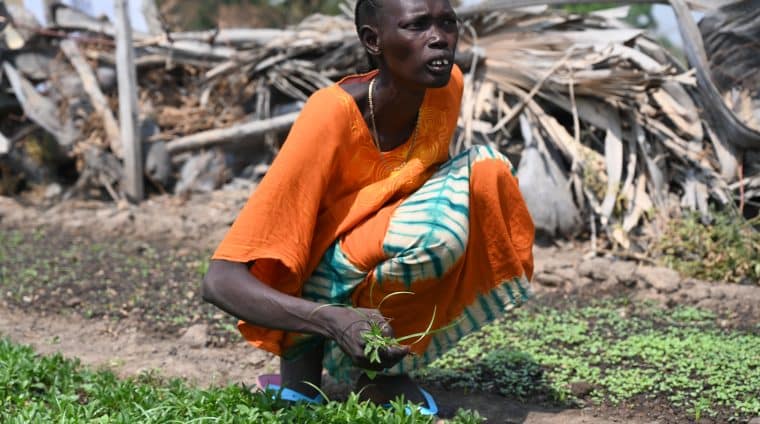Efa Ravelonantoandro, Programme Manager for the Environment and Sustainable Development at the Centre Arrupe Madagascar, shares his thoughts after taking part in COP29 in November.
As COP29 ended in Baku, it’s important to reflect on its results and what we can learn to push forward global climate action.
This year’s conference highlighted the urgent need for unity, new solutions, and the inclusion of voices from vulnerable countries like Madagascar.
A key focus of COP29 was climate finance. Although rich countries committed to meeting the Paris Agreement goals, their promise to provide $300 billion each year to developing nations was much less than the over $1 trillion that was requested.
This gap shows the ongoing challenge of turning promises into real financial support, which is essential for tackling climate change in vulnerable regions.

The global Ignatian community came together to call for climate justice, making three main demands: setting up an effective Loss and Damage Fund, canceling debt to help countries build climate resilience, and ensuring a fair energy transition.
These requests highlight the need for comprehensive solutions to address both the causes and effects of the climate crisis. While COP29 reaffirmed the Loss and Damage Fund, the promises on debt relief and energy transition were not as strong as the Jesuit statement had hoped for.
Adaptation was also a key topic. The conference shared successful approaches, such as nature-based solutions and advanced early warning systems. Madagascar used this platform to showcase its own innovative projects, like community-driven reforestation and sustainable farming practices, during a panel on nexus water, food and agriculture, which serve as examples of resilience and collaboration.
For organizations like Centre Arrupe Madagascar, COP29 provided valuable opportunities to expand networks, engage with important stakeholders, and advocate for integral ecology and climate justice. This included working with groups like Greenpeace International, the Catholic network, the Laudato Si Movement, and others.
“Madagascar, with its rich biodiversity and vulnerability to climate impacts, is in a unique position to lead efforts”
Building stronger partnerships with environmental donors and international collaborators is essential to sustaining and growing projects. The conference also stressed the importance of linking local advocacy with global strategies, ensuring that local voices have a say in shaping global efforts.
Looking ahead, it’s crucial to continue building collaboration across governments, civil society, and the private sector. Madagascar, with its rich biodiversity and vulnerability to climate impacts, is in a unique position to lead these efforts. By addressing both its strengths and challenges, Madagascar can play a key role in climate action.
A new climate finance mechanism and a stronger Loss and Damage Fund should be closely tied to each country’s NDC2 and NDC3 (Nationally Determined Contributions).
Since 2022, we have been focusing on implementing NDC2 and have identified three key areas to be improved: strengthening financial mechanisms, promoting technological innovation, and prioritizing inclusivity and gender equality.

Looking forward to NDC3, expectations are high. Countries must set clear, measurable short- and long-term targets, with solid systems for tracking progress. Success will depend on cross-sector collaboration, innovation in climate policies, and building capacity among all stakeholders. Moreover, working together across sectors and integrating local communities can make these initiatives more effective and impactful.
COP29 reminded us that addressing climate change is a shared responsibility. Moving forward, progress will depend on turning promises into real actions, holding each other accountable, and ensuring that no one is left behind in building a sustainable future.





